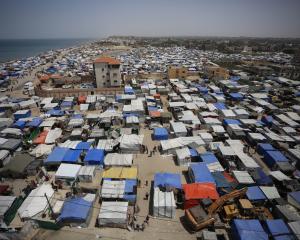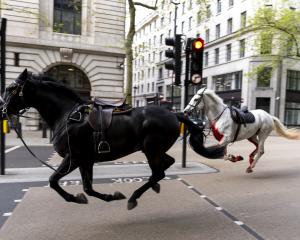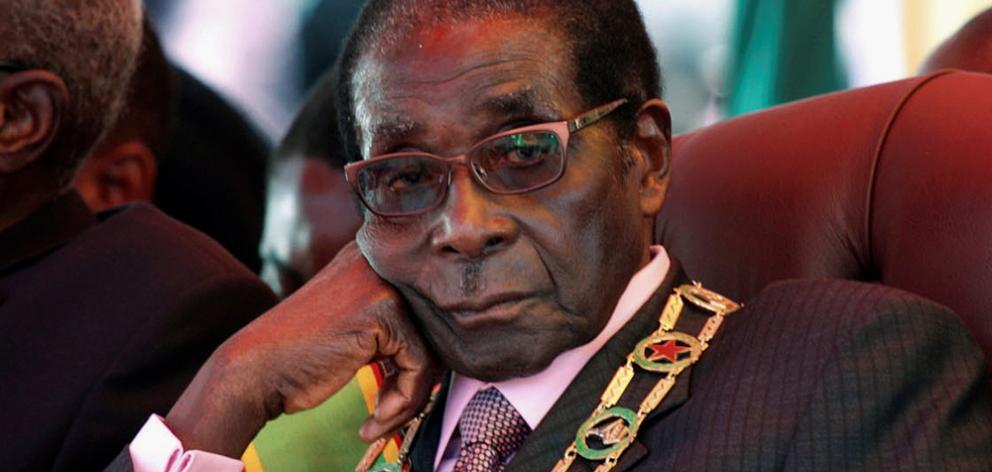
Zimbabwe's military has told regional leaders its move to seize power from President Robert Mugabe was not a coup, the head of the African Union commission says.
Moussa Faki Mahamat, on a visit to Washington for talks with US Secretary of State Rex Tillerson, said on Wednesday he had not spoken to Mugabe but added: "The military have reassured us this is not a coup d'etat. The African Union is against any unconstitutional change of government."
Zimbabwe's military seized power earlier in the day, saying it was targeting "criminals" around Mugabe (93), who has ruled Zimbabwe since independence in 1980.
Soldiers seized the state broadcaster and a general appeared on television to announce the takeover. Armoured vehicles blocked roads to the main government offices, parliament and the courts in central Harare, while taxis ferried commuters to work nearby. The atmosphere in the capital remained calm.
In his first contact with the outside world since the takeover, Mugabe spoke by telephone to the president of South Africa, Jacob Zuma, and told him he was confined to his home but fine, the South African presidency said in a statement.
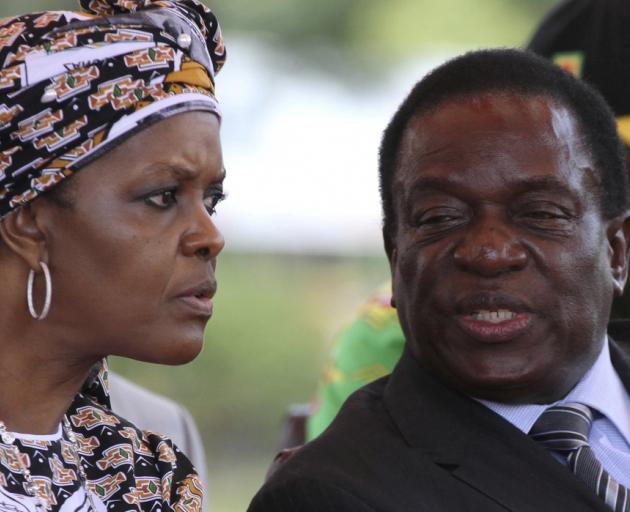
It was not clear whether the apparent military coup would bring a formal end to the Mugabe's rule; the main goal of the generals appeared to be preventing Mugabe's wife Grace, 41 years his junior, from succeeding him.
But whether or not he goes, it may mark the end of the country's dominance by Mugabe, the last of Africa's state founders still in power from the era of the struggle against colonialism, and one of the continent's most polarising figures.
Mugabe, still seen by many Africans as a liberation hero, is reviled in the West as a despot whose disastrous handling of the economy and willingness to resort to violence to maintain power destroyed one of Africa's most promising states.
He plunged Zimbabwe into a fresh political crisis last week by firing his vice president and presumed successor. The generals believed that move was aimed at clearing a path for Grace Mugabe to take over and announced on Monday they were prepared to "step in" if purges of their allies did not end.
"We are only targeting criminals around him (Mugabe) who are committing crimes that are causing social and economic suffering in the country in order to bring them to justice," Major General SB Moyo, Chief of Staff Logistics, said on television.
"As soon as we have accomplished our mission, we expect that the situation will return to normalcy."
United Nations Secretary-General Antonio Guterres, the African Union and Western countries and called for calm.
"We cannot tell how developments in Zimbabwe will play out in the days ahead and we do not know whether this marks the downfall of Mugabe or not," British Foreign Secretary Boris Johnson told parliament. "We will do all we can, with our international partners, to ensure this provides a genuine opportunity for all Zimbabweans to decide their future."
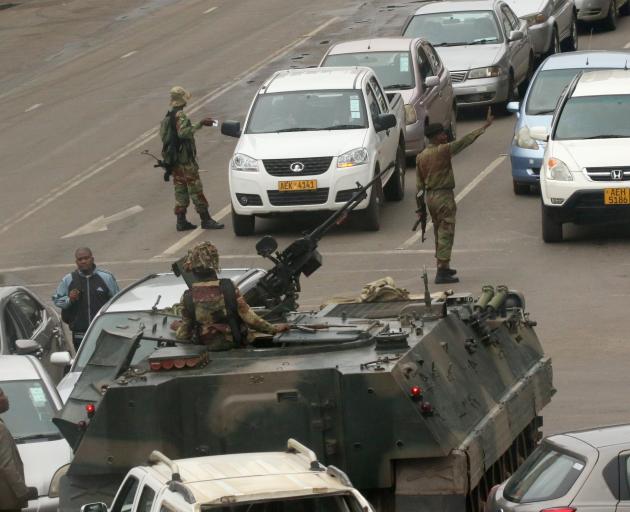
Exiled Zimbabweans hope for end to corruption
Zimbabweans living in South Africa hope the move by the military to seize power from Mugabe will end corruption, abuse of power and economic hardships, even though uncertainty remained as to who was in charge.
Several million Zimbabweans have fled, mostly to South Africa, after the economy shrank by more than a third from 2000 to 2008 following the collapse of the agriculture sector. Unemployment rose to over 80%. Many in the diaspora said they were happy to see change back home at last.
"I think it's a step in the right direction for a political situation which was now a joke," Kevin Mpofu (28) said. "The arrests that have happened so far are a celebration for many Zimbabweans tired of the corruption and abuse of power."
A 30-year-old Zimbabwean working as a marketing officer in South Africa who gave his name as Billy said it was "about time but it might be 20 years too late."
He worried that one strongman might follow another: "It may be hard in future to remove that person as well. We might have another 37 years ahead of us of a single person."
Zimbabwe's economy briefly stabilised from 2010-2014 when Mugabe was forced to accept a power-sharing government with the opposition, but since then the recovery has unravelled. A chronic shortage of dollars has led to long queues outside banks and imported goods are running out.
Asked if he would return to Zimbabwe if the economy was revived, Billy said: "Definitely, there is no place like home."

